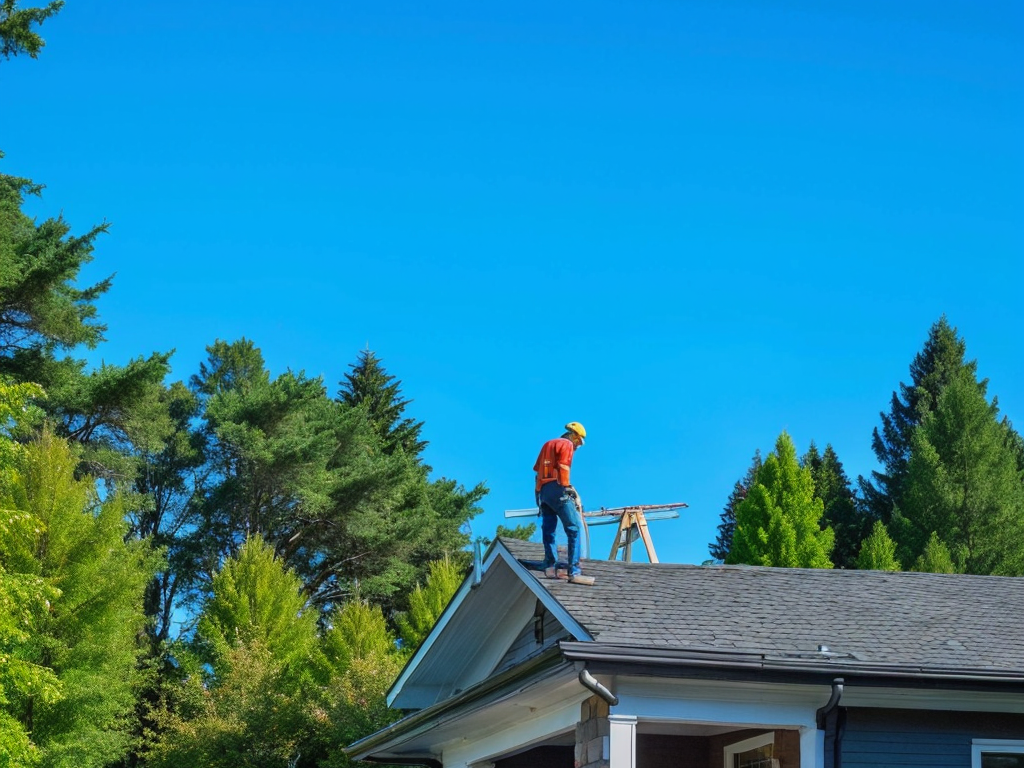Wondering how long a roofing project takes? This comprehensive guide covers timelines, factors affecting duration, and what to expect during the roofing process.
An Overview of Roofing Timelines and Considerations
The duration of a roofing project is a common concern for homeowners. Various factors influence how long it takes to complete a roofing job, from the type of roofing materials used to weather conditions and the complexity of the roof’s design. Understanding the typical timeline and what to expect can help you prepare better for your roofing project.
Understanding Roofing Project Timelines
Factors Influencing the Duration
Several factors can affect the duration of a roofing project. These include the size and pitch of the roof, the type of roofing materials used, the complexity of the roof design, weather conditions, and the experience of the roofing crew.
Typical Timeframes for Different Roofing Materials
- Asphalt Shingles: Usually 1-3 days.
- Metal Roofing: Approximately 2-5 days.
- Tile Roofing: Typically 5-10 days.
- Wood Shakes: Around 3-4 days.
- Slate Roofing: Can take 6-7 days.
Pre-Project Preparation
Before the actual roofing work begins, several preparatory steps must be completed. These include obtaining necessary permits, ordering materials, and scheduling the project.
Detailed Roofing Process and Timeline
Initial Consultation and Inspection
- Timeframe: 1-2 days.
- Details: The process starts with a consultation and roof inspection to assess the condition of the current roof and discuss material options.
Permits and Material Orders
- Timeframe: 1-2 weeks.
- Details: Obtaining permits and ordering materials can take some time, depending on local regulations and material availability.
Roof Removal
- Timeframe: 1-2 days.
- Details: Removing the old roof is a crucial step and can vary in duration based on the size and complexity of the roof.
Repairs and Preparation
- Timeframe: 1-2 days.
- Details: Any necessary repairs to the roof deck or structure are done before the new roofing materials are installed.
Installation of New Roof
- Timeframe: Varies by material.
- Details: The installation process includes laying down underlayment, installing new shingles or other materials, and ensuring everything is properly sealed.
Final Inspection and Cleanup
- Timeframe: 1 day.
- Details: After installation, a final inspection is conducted to ensure everything meets local codes and standards, followed by a thorough cleanup.
Factors That May Extend the Roofing Project
Weather Conditions
Inclement weather, such as rain, snow, or extreme temperatures, can delay a roofing project significantly.
Roof Complexity
Complex roof designs with multiple facets, steep pitches, or intricate details take longer to complete.
Unexpected Repairs
During the roofing process, unforeseen issues like damaged roof decking or structural problems can arise, requiring additional time for repairs.
Contractor Availability
The availability and scheduling of the roofing contractor can also impact the timeline. High demand seasons may result in longer wait times.
What to Expect During the Roofing Project
Communication with the Contractor
Regular updates from the contractor help keep you informed about the project’s progress and any potential delays.
Noise and Disruption
Roofing projects can be noisy and disruptive. Understanding this ahead of time can help you plan accordingly.
Safety Measures
Contractors will implement safety measures to protect both the workers and your property during the roofing process.
Ensuring a Smooth Roofing Project
Choosing the Right Contractor
Selecting an experienced and reputable roofing contractor is crucial for ensuring a smooth and timely project.
Clear Contract and Expectations
Having a clear contract that outlines the project scope, timeline, and costs helps avoid misunderstandings and delays.
Regular Check-ins
Regular check-ins with the contractor can help address any issues promptly and keep the project on track.
Roofing Project Cost Considerations
Material Costs
The cost of roofing materials varies significantly, influencing the overall project duration and budget.
Labor Costs
Labor costs depend on the complexity of the project and the experience of the roofing crew.
Additional Expenses
Additional expenses such as permits, inspections, and unexpected repairs should be factored into the overall budget.
Post-Project Maintenance and Care
Regular Inspections
Regular roof inspections can help identify and address potential issues early, extending the life of your new roof.
Proper Cleaning
Keeping the roof clean and free of debris helps maintain its integrity and appearance.
Addressing Repairs Promptly
Promptly addressing any repairs needed can prevent more significant issues down the line.
Common Questions About Roofing Projects
How long does it take to get roofing permits?
Typically, obtaining roofing permits can take anywhere from a few days to a couple of weeks, depending on local regulations.
Can roofing be done in the winter?
Roofing can be done in winter, but cold weather can affect material performance and installation time. It’s best to consult with your contractor.
What happens if it rains during my roofing project?
Contractors will usually cover the exposed roof with tarps to protect your home. However, significant rain can delay the project.
How can I prepare my home for a roofing project?
Clear the area around your home, protect items in the attic, and communicate with your contractor about any specific concerns.
What are the signs that my roof needs replacement?
Signs include missing or damaged shingles, leaks, sagging, and moss or algae growth.
How often should I have my roof inspected?
It’s recommended to have your roof inspected at least once a year, or after major storms.
Conclusion
Understanding the timeline and factors that affect a roofing project can help you better prepare and ensure a smooth experience. By choosing the right contractor and staying informed, you can navigate the process effectively and enjoy the benefits of a new, durable roof.


